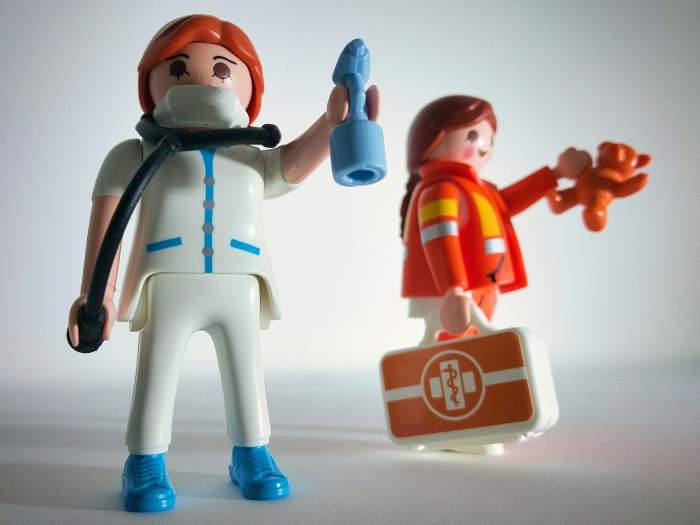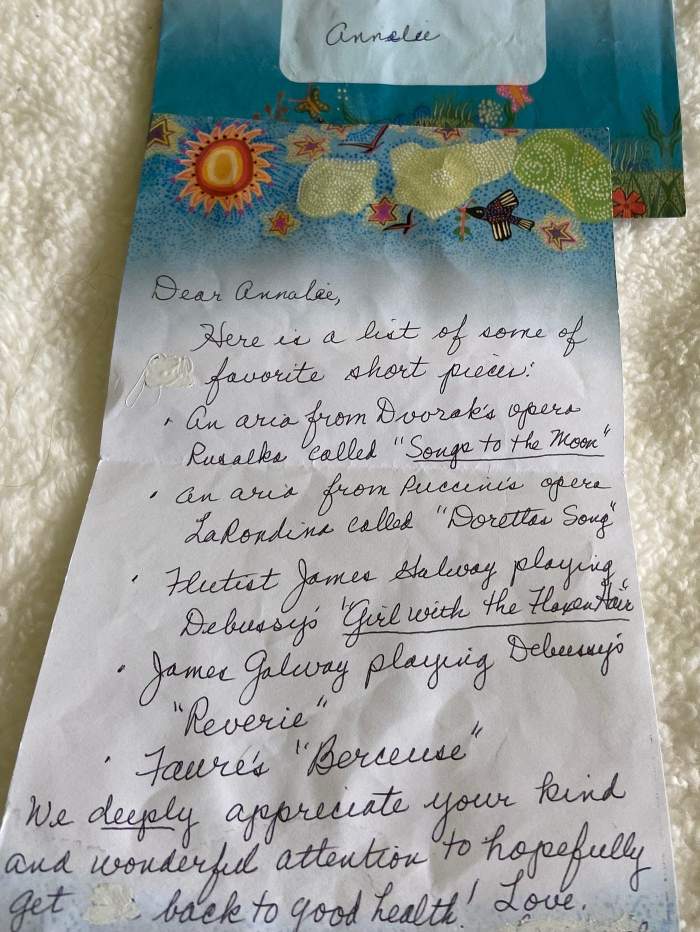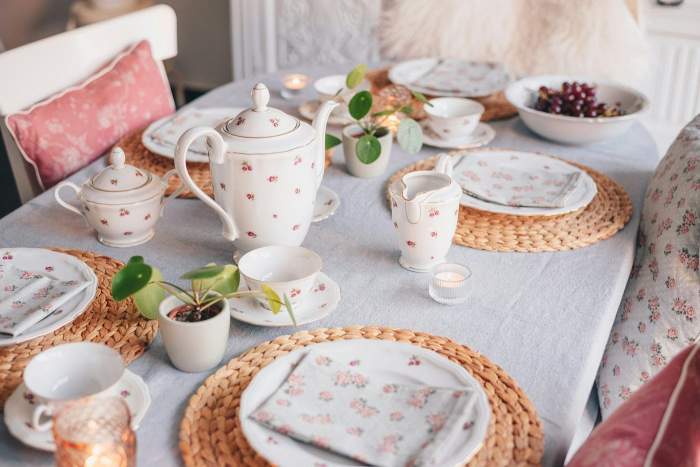The Five Things
Friday, March 8, 2024
From the mind of a man on a ventilator.

Photo by Daniele D'Andreti on Unsplash
“The mind in its own place, and in itself, can make a heaven of Hell, a hell of heaven.”
— John Milton
They rolled the stretcher with my post-op patient into the intensive care unit (ICU). The nurses from the recovery room gave their last report and the ICU team took over.
Skilled nursing hands worked fast and efficiently together. We managed the patient while making small talk with each other and with his wife who waited patiently nearby.
He was sedated and attached to a beeping cardiac monitor. Multiple intravenous lines and bags with medications and fluids were added, organized, or discontinued.
The respiratory therapist connected him to a ventilator, a breathing machine that was already set up in the room. There was nothing unusual about that.
Assisting post-surgical patients with temporary mechanical ventilation lessens the workload for the lungs and assists in the healing process. It keeps the airway open while delivering oxygen and removing carbon dioxide.
During the time spent on a vent, the patient has a breathing tube placed into the windpipe. Therefore, he cannot eat, talk, or do much.
My job as a nurse is to assess, make a clinical judgment, monitor, carry out doctor’s orders, report patient’s status, reposition for comfort, and provide emotional support.
Less than 30 minutes after arrival into the ICU, lines and gown and sheets were changed. The patient was settled into his hospital bed.
The wife put a few personal belongings in the closet and at the bedside table. She then sat down in a recliner next to her husband’s bed.
She pulled out a book and began her own ICU journey as a family member.
The time she spent in that recliner became much longer than what we had first anticipated.
What was meant to be a temporary use of the ventilator, turned into almost three weeks. Complications and setbacks are rarely foreseen. We just deal with them as they come along.
I took care of this patient and his wife on and off during their ICU stay. A delightful couple in their mid-sixties, I grew to know them better as time went by.
When the patient was finally weaned off the ventilator, got out of bed, ambulated with assistance, and tolerated light eating, I celebrated with them.
Then I asked him a question. This question I loved to ask patients, who for various reasons, spent prolonged periods of time being out of commission, "What were you thinking about, all those days and nights, while you were on the ventilator?"
“I was thinking that I did not know if I was going to live or if I was going to die. If I was going to die, I thought that I wanted to bring some things on the journey to the afterlife. What should I bring?
If I could bring five paintings, five books, five movies, and five pieces of music, how would I choose? What would I most enjoy? And, on which criteria and rationale would I base my preferred choices?”

Photo by Mohammed Gadi on Unsplash
Of course, he did not stop there, three weeks is a long time. The luggage for his possible journey expanded into five best friends, foods, memories, and more.
And, he had to keep track of everything. His mind was working overtime, bringing a lifetime of things that mattered into focus.
Later, he confessed to making a promise to himself. He promised himself that if he ever got off the ventilator and was discharged to home, he would consciously choose his lifestyle, filling his days and nights with what mattered, his five things.
One day I asked my patient if he could please write down his five favorite music preferences before he left the ICU. I dreamt of the time I would retire and spend more time listening to my favorite music.
When he was downgraded to a step-down unit and discharged from the ICU, I was off from work. I was unable to give him and his wife my goodbyes and future best wishes.
But they left their beautiful footprint behind, a forever mark in the memory of my mind and my heart.
When I came back on duty, my nursing supervisor gave me a letter, left by his wife. She had written down the five choices of music that her husband had made during his ventilator-dependent possible afterlife journey.
Their names are whitened out in respect of confidentiality.

During my 30-year nursing practice, I received many cards and many letters from patients and their family members. This one I kept.
I knew that one day I would sit down and listen to his chosen music. It took more than a decade, but finally, last week I did listen.
I lit a candle, poured a glass of red wine, elevated my legs, and put on earphones. At the touch of my phone, YouTube was ready to serve me a beautiful concert.
One by one, I listened to the five pieces of music that my patient had found worthy of bringing with him to the afterlife. With much pleasure, I share his chosen treasures with you:
- An aria from Dvorak’s opera LaRondine called “Songs to the moon.”
- An aria from Puccini’s opera LaRondine called “Doretta’s song.”
- Flutist James Galway playing Debussy, “Girl with the flaxen hair.”
- Flutist James Galway playing “Reverie.”
- Gabriel Faure’s “Berceuse.”
. . .
The five things are more about a process than about the things
As we grow older, moving towards the distal part of life’s continuum, the process of the five things becomes more and more important.
Instead of filling our days and nights with useless clutter, we can consciously use this process to choose what matters.
We can use this process as a springboard to engage The 80/20 Principle of achieving more with less. If 20 % is value and 80% is clutter, decrease the clutter and increase the value.
What do you treasure most?

Photo by Libby Penner on Unsplash
From people to food, from clothes to linens, from dishes to glassware; what best serves you? What makes your life better, and what do you enjoy? Although different, and thank heaven for that, the answers to these questions matter to quality of life.
- Spend more time with the five people that you enjoy the most. Slowly weed out the people who drain your battery. This is not easy, but what a relief it is to do so. Do the activities that you enjoy with people who enjoy your company, and who stimulate and inspire you.
- Include the five most nutritious foods in your daily diet. Get rid of the junk food that increases systemic inflammation. You know which ones; the ones we love.
- Exchange potato chips and cookies for nuts and dark chocolate. And when you can’t stand it anymore, enjoy the potato chips and the cookies and the whole nine yards.
- Select the five outfits that you most use and enjoy wearing. Gather everything else and bring it to the Salvation Army, Goodwill, or a Thrift store. I realized that I had nine white shirts, nine. But no more; now I only have three, or well, maybe four.
- Clean out the linen closet. With extra space, store soap bars for a delicious scent instead. Keep what you need and enjoy and donate or sell the rest. Forgotten and unused bed sheets and towels can better be used by the less privileged who need them more.
- Dishes and glasses and fine China and table clothes, keep the best and donate the rest. Start using your best China and best tablecloth, the ones you saved for special occasions. In the autumn of life, every day is a special occasion.
I enjoyed listening to the five music pieces that my patient loved.
It was nice classical music, especially “Songs to the Moon” and the flute playing. But I have my own preferences and my own criteria for my choices; A song from my younger days by J.D. Souther, called “You’re Only Lonely”, I find beautiful. It resonates with a boomer like me.
The benefits of this process are unlimited and liberating. Best of all, we don’t have to be on a respirator or in a negative predicament to enjoy them. Adding value to our lifestyle by bringing awareness to what matters is a beautiful thing.
For teaching me about the five things process, I send gratitude to the memory of my patient who spent nearly three weeks on a ventilator. Not only did this man use his mind to find a way of enduring a hard time, but he also found a way to improve the time he had.
. . .
🇳🇴Annelie Holmene Pelaez believes that everyone has an attribute to share with others. Promoting cardiovascular health and helping adults over age 65 is her contribution. When we don’t let age define us, but rather empower us to grow, we discover health and happiness are byproducts of who we are.
Annelie is the author of the book, Say Yes to A Better Life, available at Amazon.





